- Home
- Paul Christopher
Sword of the Templars Page 8
Sword of the Templars Read online
Page 8
Bumps, he murmured. Like little beads.
Gold solder, agreed Holliday. Unevenly spaced, but repeating. A total of seventy-eight beads as you call them.
Not a very complex message, said Peggy.
The beads arent the message. Braintree smiled. Theyre like the rotors on the German Enigma machine from the Second World War. If you lay the beads on the wire along the key text it will give you the appropriate transpositions to use.
Im lost, said Peggy, frowning.
I think I see it, said Holliday. If you repeat the spaces between the beads throughout the text, that will give you the message.
Thats it, nodded Braintree.
Im still lost, muttered Peggy.
The professor shrugged.
It doesnt really matter unless youve got the key. He paused. Wheres the sword now? he asked. You didnt bring it with you by any chance, did you?
Not the kind of thing you want to carry across borders these days, said Holliday. Its safely tucked away. In fact theyd taken the sword to Miss Branch, whod tucked the weapon away in the universitys security vault.
Too bad, said Braintree, I would have loved to have seen it.
Peggy reached into her bag and took out a handful of digital prints shed made of the sword. Braintree looked at each of them carefully.
An arming sword, the professor said, nodding. Early thirteenth century if the Templar seal is any indication. He looked up at Holliday. Youre sure its authentic?
I might be fooled by a good reproduction, he said, but not Uncle Henry. Besides, who would go to all the trouble?
If its real it would be worth an enormous amount of money. Ive got a few rivals across the road at the Royal Ontario Museum whod probably sell their own mothers to get a sword like that in their collection. It would be worth faking just for the financial reward let alone anything else.
Grandpa wouldnt have gone to so much trouble over a fake, said Peggy.
The inscription is a little bit over the top though, dont you think? Alberic in Pelerin? Do you know the provenance? Whose collection was it in?
Adolf Hitlers, said Holliday flatly, enjoying the startled expression on the Canadian professors face.
Youre sure?
Positive.
Braintree looked through the pictures again, then nodded slowly.
It makes sense, historically. Hitler was intrigued by all that pseudo-scientific garbage Nietzschean stuff about the Aryan race. Blood and Soil, the Ring of the Nibelungen. Valkyries. Dwarf swordsmiths, Templars, Masonic rituals. He would have loved it. Braintree gave a short, sour laugh. Who knows, maybe he thought it was Tirfing.
Whats that? Peggy asked.
The sword of Odin, said Braintree. If you like Wagnerian opera.
Peggy snorted. Only what I heard on the soundtrack of Apocalypse Now, she answered.
Then again . . . mused the professor. Maybe its not that Alberic at all.
Theres more than one? Peggy said.
Yes, actually, said Braintree. He got up from behind his desk and began going through piles of books stacked up on the floor. Not finding what he wanted, he moved to the bookcases that lined one wall, humming to himself and occasionally pulling a book halfway out to examine it.
Aha! he said at last. Got you.
Who? Holliday asked.
Him, said Braintree, handing him the thick hardcover book. Holliday read the title: The Templar Saint, Alberic of Cîteaux and the Rise of the Cistercian Order. He looked below the title. The author was somebody named Sir Derek Carr-Harris with a lot of letters after his name, including D. Litt. Oxon and KCBE. A knight commander of the British Empire, one better than Paul McCartney, and a doctorate from Oxford, to boot. Impressive. And the name was vaguely familiar, as well.
You think this is the Alberic inscribed on the sword?
It would make sense, especially since the word fecit in Latin can mean made for as well as made by.
Made for Alberic in Pelerin, said Peggy.
It could easily be a play on words, suggested Braintree, taking the book back from Holliday and flipping through it to the index. The message was intended for Alberic, and the sword was manufactured in Pelerin for the express purpose of getting the message to him, probably at the monastery in Cîteaux.
Wheres that? Peggy asked.
France, replied Braintree. Just south of Dijon. He nodded to himself, running his finger down a page in the index then stopping. Here it is, he said, a note of triumph in his voice. He went back to his desk and picked up one of Peggys photographs. He glanced at it, then handed the picture to Holliday. It was a close-up of the chops on the tang of the sword and the inscription.
De laudibus novae militiae, addressed to Hugues de Payens, first Grand Master of the Templars and Prior of Jerusalem.
I dont understand, said Holliday.
The initials D.L.N.M. De Laudibus Novae Militiae. It was a famous letter written to Payens, the founder of the Templar Order. Its the code key. He paused. And theres one more thing, the clincher.
What? Holliday asked, feeling a surge of excitement as faint clues from the past began drifting up to the present day like whispering ghosts as the mystery was unraveled.
Bees, said Braintree, pointing to the stamped design in the photograph. In France Alberic of Cîteaux is the patron saint of bees and beekeepers.
Peggy picked the book up off the professors desk.
I know this name, she said, thinking hard. Finally she got it. The photograph in Grandpa Henrys office. The one taken in Cairo or Alexandria in 1941. One of the men in the photograph was Derek Carr-Harris.
Who went to Oxford, said Holliday, staring at the cover of the book in her hand.
Who wrote down the directions to his country house in Leominster on the Old Members invitation, finished Peggy, grinning.
Braintree looked confused.
Did I miss something?
9
After spending less than twenty-four hours in Toronto, Peggy Blackstock and John Holliday took a late-night British Airways flight from Pearson International to Heathrow, arriving at nine oclock the following morning. Calling ahead to Derek Carr-Harriss office in Oxford informed them that the professor was on summer holidays at his country house and could not be contacted there since his office politely but categorically declined to give out either his address or his private telephone number. The phone number in Uncle Henrys address book rang unanswered when they called, so presumably it was his home number in Oxford.
Arriving at Heathrow, they took the Underground to Paddington station and paused in the station restaurant for a horrible breakfast that advertised itself as sausages and eggs, but wasnt, and an equally terrible cup of coffee. Breakfast eaten, they climbed aboard the Virgin Rail train to Wales and three hours later found themselves in the country town of Leominster.
Lemster, as Peggy pronounced it, had achieved some notoriety in the Middle Ages as a thriving market town where you could buy the best lambs wool in the worldLeominster Oro as it was called. Since then it had become a quaint backwater on the ancient and often disputed border between England and Wales. To Holliday it seemed to have the same faintly over-varnished look of tourist towns in the States that often survived on their questionable history, their tourist appeal, and the quality of their French fries, or in the case of Leominster, its Mousetrap Cheese and its endless variety of antique shops.
Just a little twee, as Peggy put it, strolling down the High Street toward something called The Butter-cross looking for a place to rent a car. She settled on a squat-looking little Toyota Altis from Avis, and after getting some complicated directions from a pimply young attendant named Billy
who kept on referring to Peggy and Holliday as Yanks they set off, heading west on the Monkland Road. Switching to the even narrower A44 after a few miles, Peggy gripped the wheel tightly as she piloted the car between the bracketing hedgerows on both sides of the road. Every now and again theyd reach the top of a hill and, for a second or two, theyd catch a glimpse of the pastoral patchwork of fields they were driving through.
Its like going down a bobsled run, she muttered, praying that they wouldnt meet someone driving in the opposite direction; the road was barely wide enough for the compact Altis, let alone a full-sized car, truck, or God help them, some lumbering piece of farm machineryor even worse, a flock of the wooly sheep the area had once been so famous for.
Okay, Peggy said to Holliday, keeping her eyes peeled for jaywalking sheep. Reality check time. Youre giving up a month of trout fishing in Patagonia, and I turned down a choice assignment in New Zealand, a place Ive never been, I might add. So once again, why are we doing this?
Because that son of a bitch Broadbent had Uncle Henrys house burnt down, said Holliday.
That doesnt explain why we caught the red-eye to Heathrow and had to eat British Airways cheese rolls, said Peggy.
Presumably he burned down the house in an effort to hide the fact that hed stolen the sword, answered Holliday. The sword was that important to him.
Its just a sword, Doc. An artifact from the Middle Ages, like Leominster back there. What does it have to do with us?
A thousand years ago somebody in the Knights Templar sent a message to one of the Templar founders in France. It was so important that the message was sent in code, wrapped around the hilt of the sword that Uncle Henry found in Hitlers country house in the Bavarian Alps. Uncle Henry thought it was important enough to have hidden it away and never mentioned it for more than half a century. In fact he was making sure that no one got hold of the sword until after he was deadthats why he put the clue in that copy of The Once and Future King. It was important to the Knights Templar a thousand years agoit was so important that your grandfather went to great lengths to hide it away, and it was important enough for Broadbent to commit a crime for it. That means the message encoded on the sword is still important. Thats why were doing this.
Following young Billys directions they took the second right turn after the A44 intersection and headed down a narrow unnamed road for a hundred yards or so, then turned onto a wooded country lane with a small sign that read LESPOIR in faded white letters painted on a rusted milk can perched precariously on a pile of stones.
The Hope, translated Holliday, reading the sign. They drove down the lane, the dense scrub of witch elm and lime trees on either side of them almost brushing against the car. An old steel farm gate yawned open on the right. Peggy turned the car into the scruffy front yard of LEspoir.
There were half a dozen buildings scattered about in a loose cluster around the main farmhouse including a pair of sagging, half-timbered barns, something that might have once been a stone granary, and a more recent Dutch-style open structure with a very old-looking curved, corrugated, and rust-stained iron roof. Instead of hay under the roof there was an eighteen-foot coble dinghy overturned on sawhorses desperately in need of paint. Holliday could read the name on the transom: Dawn Treader. Clumps of grasses grew waist high everywhere in the yard except on a gravel-strewn patch where the oil leaks of cars and farm machinery had stained the soil.
There were two ancient-looking Volkswagen campers beside the Dutch barn, an even older Morris Minor estate wagon up on blocks beside the granary, and a relatively new-looking but extremely muddy Land Rover parked beside the farmhouse. Off to one side there was a weed-choked pond surrounded by a bank of dried-out bulrushes. All of this was enclosed by a shielding fortress ring of hedges, trees, and shrubbery run amok.
Not much hope here, said Peggy, pulling up beside the Land Rover. They climbed out of the car and stood looking at the farmhouse in the early-afternoon sunlight. The house was as much a hodgepodge as the rest of the property: a central building of thatched-roof stone with a sagging half-timbered extension that could easily have been sixteenth or seventeenth century and finally a modern brick extension that looked like early Victorian, all of it cobbled together with struts, timbers, and unsuccessful patchworks of stucco and plaster. At first glance there didnt seem to be a window or doorframe still hanging true.
There were three doors on the near side of the farmhouse to choose from. Holliday knocked on the most substantial, an oak-planked slab with iron strap hinges, the wood stained almost black with the passage of time.
A moment later they heard shuffling footsteps and then the drawing of a heavy bolt. The door opened. The man who answered the knock was tall and a little stooped, with thinning hair that looked as though it might have once been blond but that was now a peculiar color of nicotine gray. He appeared to be in his eighties, and once upon a time he would have been called handsome. He wore bright red half-framed reading glasses on a long aquiline nose, a tatty green cardigan that was missing a button or two over a striped white shirt and wrinkled cotton trousers that were splattered with paint. There were expensive-looking slippers on his feet, and a tumbler with an inch of amber liquid in his left hand.
Yes? he said.
Sir Derek Carr-Harris?
Mr. Carr-Harris will do, he answered, almost sheepishly. The Sir makes me feel too much like a country squire out of a P. G. Wodehouse novel. Sir Watkyn Bassett in The Code of the Woosters or something. And you are?
John Holliday and Peggy Blackstock.
The man standing in the doorway beamed.
From America. Henry Grangers nephew and his granddaughter, yes?
Thats right, nodded Holliday.
How wonderful! Carr-Harris said. Do come in! He stood aside and waved them in with his whiskey glass. They stepped into a short hallway lined with bookshelves, and Carr-Harris closed the door, bolting it behind him. He led them into a large, high-ceilinged living room; the rafters were made of hand-hewn beams two feet thick.
There were framed paintings on the walls, all oils and all from the British Romantic School of the early nineteenth century: bucolic country scenes with buxom milkmaids and Turneresque sailboats setting out on stormy seas. Where there werent paintings there were roughly made bookcases. Between two of the bookcases there was a tall, Victorian walnut gun case with a glass door. There was a vaguely musty smell that came either from the books or the moldy thatch in the roof. There wasnt the faintest sign of a womans touch anywhere in the room.
Peggy wrinkled her nose.
The furniture was old, worn, and unpretentious, club chairs and a couch or two drawn up in a vague circle around an oval hearth rug that stood in front of an enormous stone fireplace. There was a large utilitarian desk off to one side with an old IBM Selectric typewriter on it surrounded by piles of books and papers. Carr-Harris folded himself into one of the club chairs and waved Peggy and Holliday to a couch. They sat.
So how is dear old Henry? Carr-Harris asked. Well, I hope, although one mustnt expect too much at our age of course.
Hes passed away, said Holliday.
Oh, dear, murmured Carr-Harris. He took a long swallow of his drink and sighed. He was very old, he said philosophically. Like me. He took another sip of whiskey and looked lost in thought for a few moments. I saw him quite recently, he said finally. The Old Members Lunch at the College, you know.

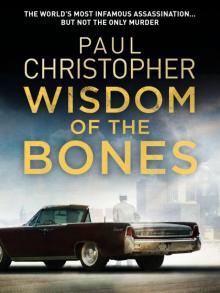 Wisdom of the Bones
Wisdom of the Bones The House of Special Purpose
The House of Special Purpose The Second Assassin
The Second Assassin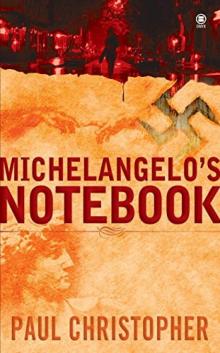 Michelangelo's Notebook
Michelangelo's Notebook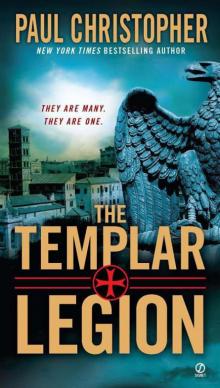 Templar Legion
Templar Legion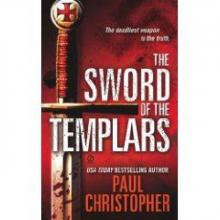 The Sword of the Templars t-1
The Sword of the Templars t-1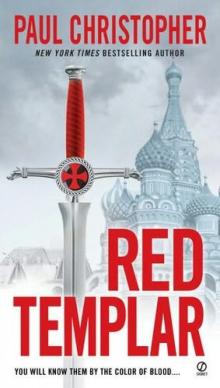 Red Templar
Red Templar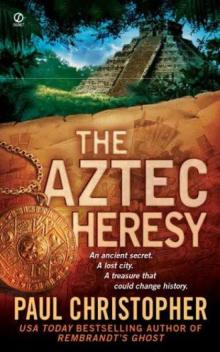 The Aztec Heresy
The Aztec Heresy The Templar Legion
The Templar Legion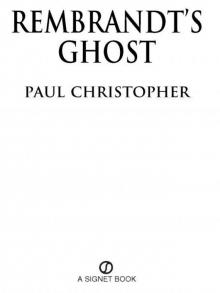 Rembrandt's Ghost
Rembrandt's Ghost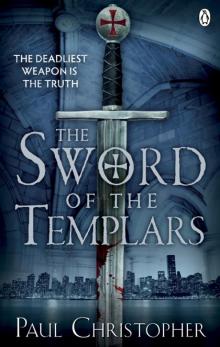 Sword of the Templars
Sword of the Templars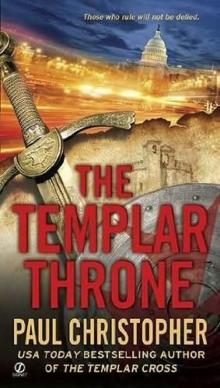 The Templar throne t-3
The Templar throne t-3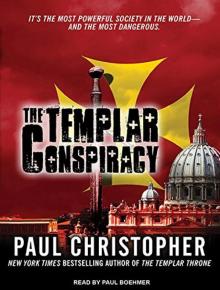 The Templar Conspiracy
The Templar Conspiracy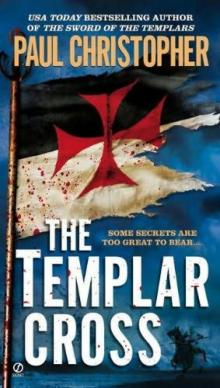 The Templar Cross t-2
The Templar Cross t-2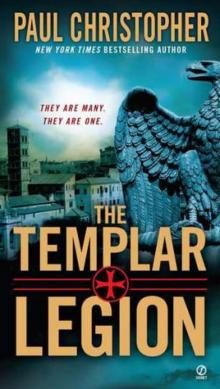 The Templar Legion t-5
The Templar Legion t-5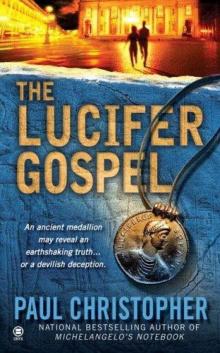 The Lucifer Gospel
The Lucifer Gospel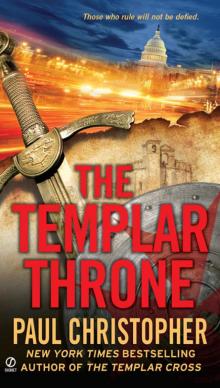 Templar Throne
Templar Throne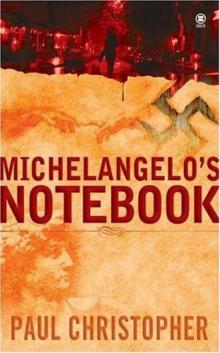 Michelangelo_s Notebook fr-1
Michelangelo_s Notebook fr-1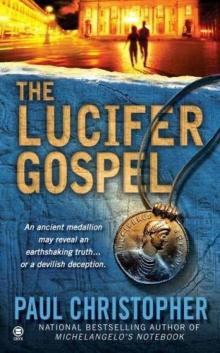 The Lucifer Gospel fr-2
The Lucifer Gospel fr-2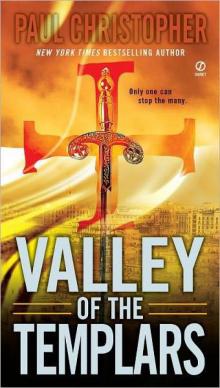 Valley of the Templars ts-7
Valley of the Templars ts-7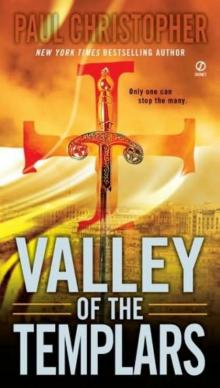 Valley of the Templars
Valley of the Templars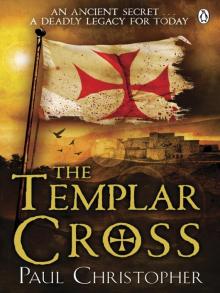 Templar Cross
Templar Cross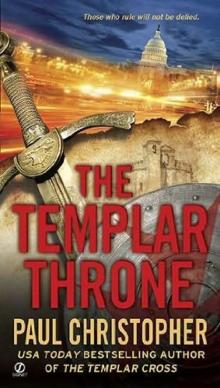 The Templar Throne
The Templar Throne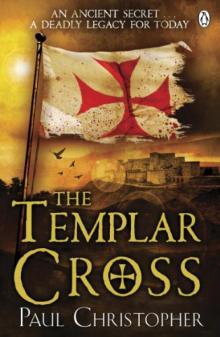 The Templar Cross
The Templar Cross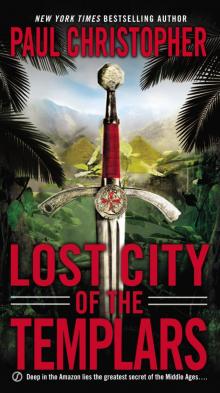 Lost City of the Templars
Lost City of the Templars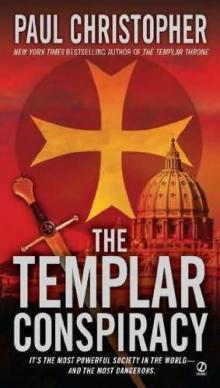 The Templar conspiracy t-4
The Templar conspiracy t-4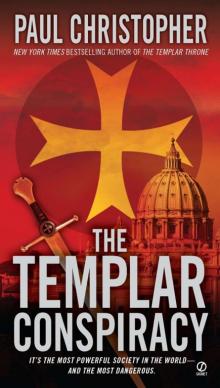 Templar Conspiracy
Templar Conspiracy